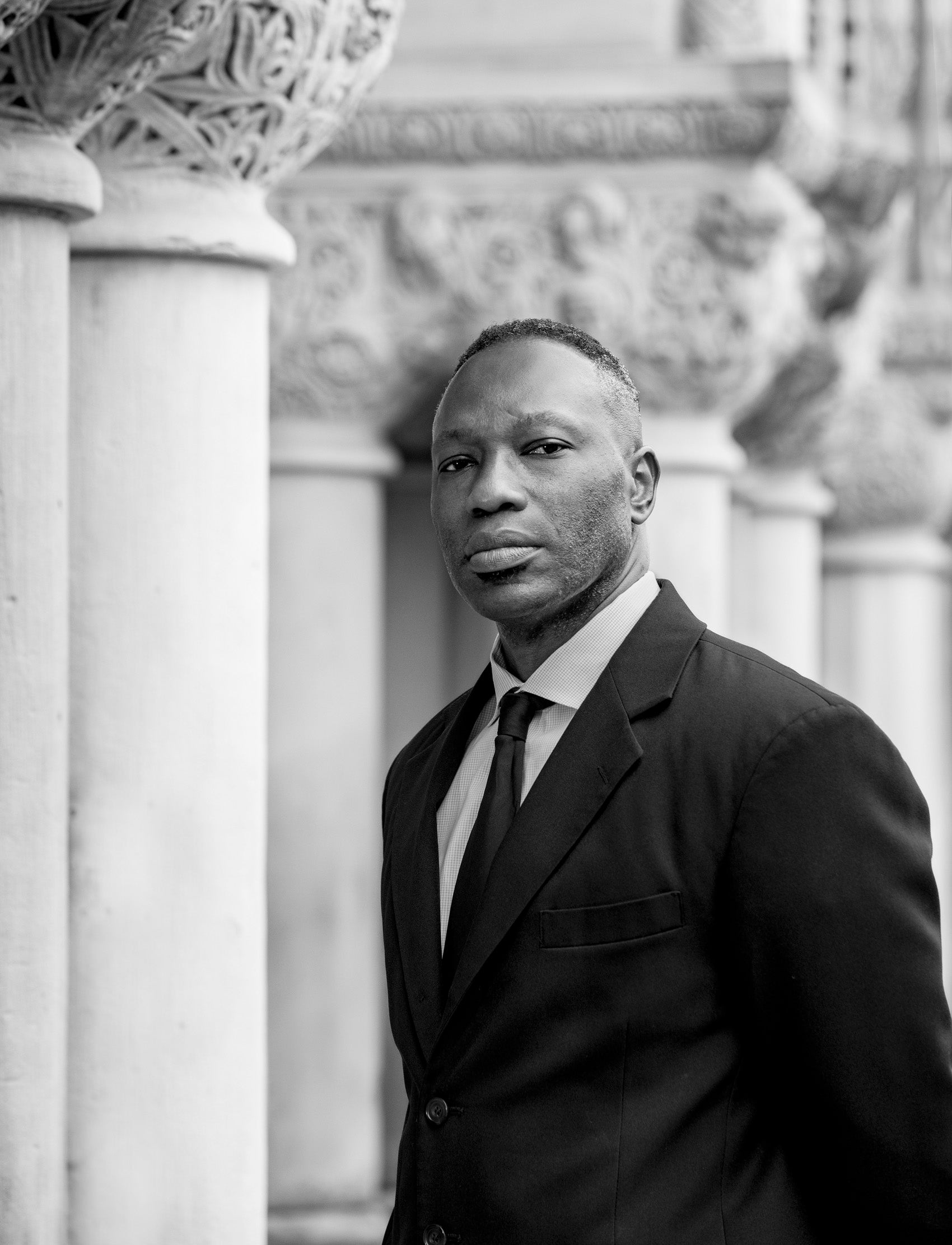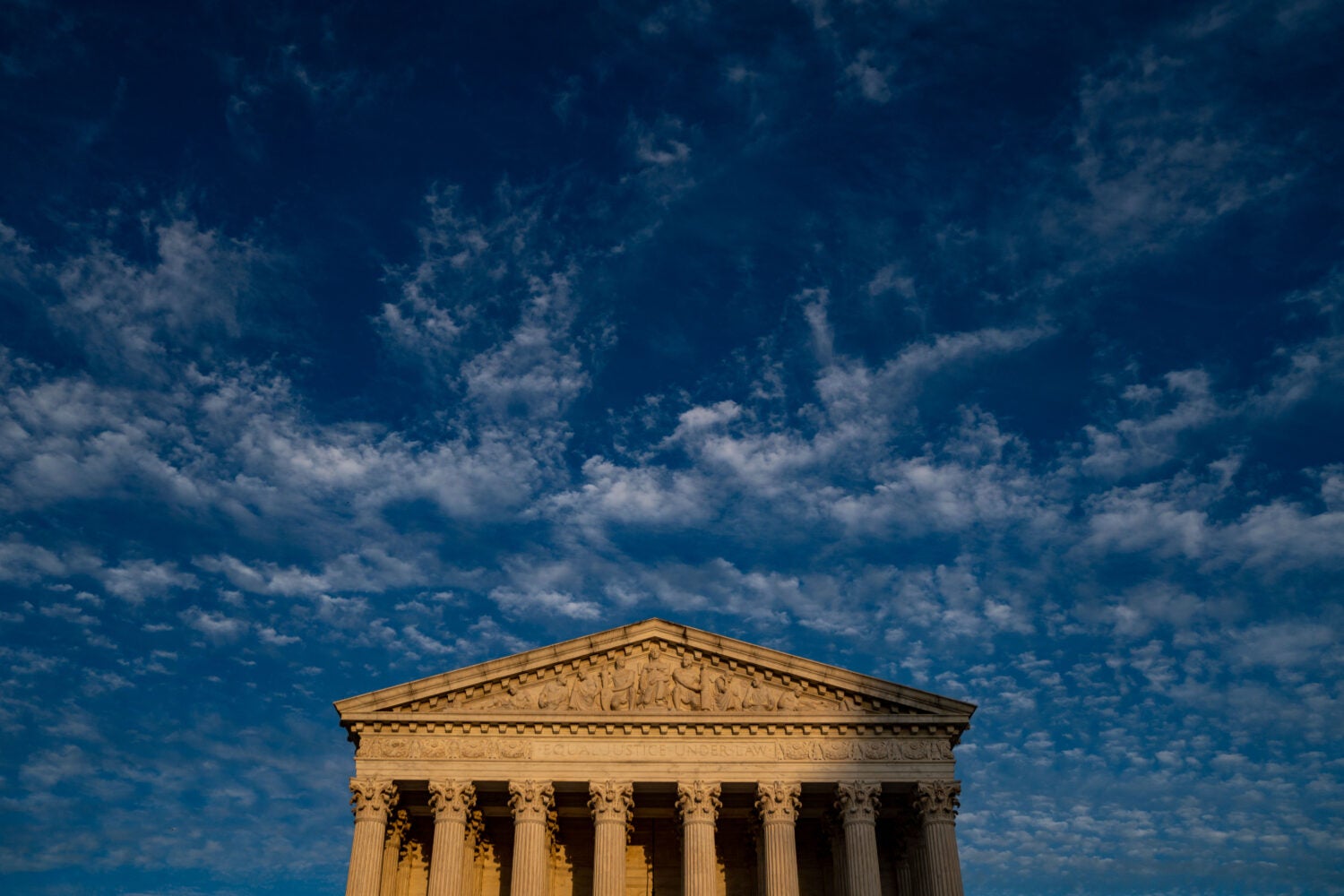As a college exchange student, I was living in France in 1988 when I became eligible to vote in my first U.S. presidential election. I dutifully sent away for my absentee ballot, carefully filled in my selection, and happily sealed up the manila envelope and dropped it in the mail, content that I had fulfilled a key part of my responsibility as an American citizen.
In the Insular Cases, the Court held that the U.S. could rule Puerto Rico and other territories largely without regard to the Constitution.
Had I chosen to remain in France and declare residency there, I would have been able to continue to vote from abroad. But had I moved permanently to Puerto Rico, I would have been out of luck. Even as a U.S. citizen, and even though the Caribbean island is an official possession of the United States, I would have been unable to vote in federal elections, just like Puerto Rico’s 3.2 million full-time residents today.
The problem stems from the Insular Cases, a series of decisions handed down by the United States Supreme Court beginning in 1901 that limited the scope of constitutional protections to the people of Puerto Rico, Guam, and the Philippines, territories annexed by the U.S. in 1898 following the Spanish-American War.
“Until Congress decided they were incorporated, they would just remain in limbo, in this other state,” said Fuentes-Rohwer. “And once you did that, the argument was the Constitution applied differently, if at all.

Fuentes-Rohwer has added his name to the growing list of advocates who, in recent years, have called for the Court to reverse its precedents in the Insular Cases, and thereby expand the rights of the roughly 3.5 million residents of the five permanently inhabited, unincorporated territories still governed by the United States: Puerto Rico, Guam, American Samoa, the Northern Mariana Islands, and the U.S. Virgin Islands. In recent years, Raúl M. Grijalva (D-Ariz.) has introduced a congressional resolution with other members of Congress calling for the Insular Cases to be overturned. He did so most recently in April 2023, just eight months before the 125th anniversary of the signing of the Treaty of Paris, which ended the Spanish-American War. The Supreme Court’s decisions in the cases, they wrote, “rest on racial views and stereotypes from the era of Plessy v. Ferguson,” the 1896 Supreme Court ruling that allowed “separate but equal” accommodations for white and Black people. These characterizations, they wrote, “have long been rejected, are contrary to our Nation’s most basic constitutional and democratic principles, and should be rejected as having no place in United States constitutional law.” The resolution has been referred to the U.S. House Committee on Natural Resources’ Subcommittee on Indian and Insular Affairs.
Critics complain it’s unfair that residents of certain U.S. territories continue to lack access to citizenship, voting rights in federal elections, certain federal benefits, and the ability to govern themselves, and even in some cases to maintain possession of their land. But the Court hasn’t signaled whether it plans to significantly change the doctrine anytime soon, despite some pushback from certain justices in recent years.
The current legal landscape
In 2019, lawyers representing residents of Puerto Rico asked the Court to throw out the early 20th-century decisions, in a suit that challenged an oversight committee created by Congress to help manage the island’s debt. The justices declined, noting that the case before them was squarely focused on questions central to the Appointments Clause of the U.S. Constitution with no relevance to the Insular Cases.
Three years later, Justice Neil Gorsuch ’91 agreed with the 2022 majority ruling in United States v. Vaello Madero, which held that residents of Puerto Rico were not entitled to receive Supplemental Security Income benefits, noting that Congress has “not required residents of Puerto Rico to pay most federal income, gift, estate, and excise taxes. Congress likewise has not extended certain federal benefits programs to residents of Puerto Rico.” But Gorsuch also issued a sharp rebuke, writing in his concurring opinion: “A century ago in the Insular Cases, this Court held that the federal government could rule Puerto Rico and other Territories largely without regard to the Constitution. It is past time to acknowledge the gravity of this error and admit what we know to be true: The Insular Cases have no foundation in the Constitution and rest instead on racial stereotypes. They deserve no place in our law.” In her dissenting opinion, Justice Sonia Sotomayor agreed with Gorsuch’s view, noting that the Insular Cases were “premised on beliefs both odious and wrong.”
But only six months later, the Court declined to take up Fitisemanu v. United States, in which plaintiffs asked the Court to both overturn the Insular Cases and rule on whether people born in United States territories are entitled to birthright citizenship under the 14th Amendment’s Citizenship Clause. To help understand what might come next in the debate, scholars say it’s important to understand how the rulings initially came to be.
A historical perspective
Following the signing of the Treaty of Paris on Dec. 10, 1898, many policymakers thought the U.S. should model itself after the European powers that had colonized large swaths of the world, while others maintained it should do nothing of the kind. Both arguments, say historians, were saturated with racist attitudes about either who needed governing, or who should or could belong to an expanding American nation.
Against that political backdrop, lawyers began developing legal theories that addressed how U.S. imperialism could be treated under the Constitution, said Gerald L. Neuman ’80, J. Sinclair Armstrong Professor of International, Foreign, and Comparative Law at Harvard. Informing that legal discourse, he said, were views expressed in the Harvard Law Review, including those of then-Harvard government professor (and later president) Abbott Lawrence Lowell LL.B. 1880, who introduced the idea of a territory that would be subject to some provisions of the Constitution but not others.
Neuman believes Lowell’s reasoning is reflected in the Court’s 5-4 decision in the 1901 case Downes v. Bidwell, in which the Court held that, although Puerto Rico belonged to the United States, it was not part of the U.S., and therefore not always subject to the same constitutional protections. The doctrine that the Downes ruling inspired, said Neuman, cemented the idea “that there are territories incorporated into the United States and territories that are unincorporated where the Constitution does not apply the same way.”

What the future holds
Scholars agree the path ahead is less than clear and that it may differ sharply depending on the individual territory. The Court could officially overturn the Insular Cases, rejecting their racial underpinnings, colonialist impulses, and the distinction they drew between incorporated and unincorporated territories, thus helping chart a path toward greater self-determination and participation in national government. But problems would remain.
“Incorporated territories don’t have voting members of Congress, and Congress can enact whatever laws it wants in incorporated territories,” said Neuman. “Such territories do get the full protection of the Bill of Rights, but a lot of the problems of nondemocratic governance would be the same if these cases were overruled.”
Many people think statehood could be a solution for Puerto Rico, where the current population outnumbers that of 18 U.S. states and the District of Columbia. The most recent nonbinding referendum on the island was held in November 2020, with 52% of those who voted opting for statehood. The Puerto Rico Status Act, introduced in Congress in 2023, aims to offer the island territory the option of voting for sovereignty in free association with the U.S., independence, or statehood.
For residents of other territories, a change in the status quo may be a less appealing possibility. In the 1970s, the Northern Mariana Islands chose not to seek independence from the United States, maintaining its relationship, many speculated, because of its proximity to China and the protections the U.S. could offer. And many in American Samoa have rejected the idea of U.S. citizenship, fearful it could disrupt their cultural traditions, and even affect rights to their land.
Even if the Court overturned the cases, rejecting their racial underpinnings, the path forward for the five territories is far from clear.
Neuman sees a potential path between statehood and full independence. “You can criticize the Insular Cases; you can repudiate the rationale of the Insular Cases. But maybe you don’t overrule it in the sense of turning back the clock to the 19th century. Rather, you move forward into the 21st century, further developing what it means to have a separate kind of territorial relationship with the United States.
“The idea that interests me in this regard is the question of whether there can be a binding agreement between the territory and the national government that Congress cannot break by legislation. There are some cases suggesting that that may be true of the compact between the Northern Mariana Islands and the United States. … That might be a way of finding an intermediate solution.”
Changing the curriculum
One important part of the path forward, according to some legal experts, is making more people aware of the cases, in particular budding lawyers. Many scholars have long been pressing for the cases to be considered a key part of law school curriculum.
In his 2000 paper “Why the Canon Should Be Expanded to Include the Insular Cases and the Saga of American Expansionism,” Sanford Levinson, a visiting professor at Harvard Law, noted that his own education — including his graduate studies at Harvard, his legal training at Stanford, and even his early teaching involving constitutional law — didn’t include the influential rulings. He suspected, he wrote, “my story is not in the least unusual.”
In fact, at the start of a 2014 Harvard Law event dedicated to reevaluating the Insular Cases, then-Dean Martha Minow confessed she had never heard of them in law school, and that a goal of the conference was to help bring them into the light.
Fuentes-Rohwer’s story was the same. “I went to law school in the early ’90s,” he said, “and we never heard of them.”
He is hoping to change that. In 2021, Fuentes-Rohwer introduced a course on the cases at the Maurer School of Law at Indiana University, and last fall, he and Harvard’s Guy-Uriel E. Charles, Charles J. Ogletree Jr. Professor of Law, taught a seminar at Harvard called American Empire: Puerto Rico and the United States Territories. The class examined a range of constitutional law questions and issues using the Insular Cases as their starting point.

“We feel very deeply that law school students should learn about the Insular Cases, the way they learn about Plessy as a way to Brown v. Board of Education,” said Fuentes-Rohwer, who is also working on a documentary about the status of the U.S. territories. “We want to bring light to a problem that people don’t know about, that law students don’t know about, that my colleagues don’t know about.”
Fuentes-Rohwer, who also uses the cases to teach students about racism, judicial behavior, and precedent, hopes one day the Court will reject the rulings as it ultimately rejected Plessy and the 1944 landmark decision Korematsu v. United States, which upheld the forcible internment of Japanese Americans during World War II.
“The language in the Insular Cases actually goes further in showing that the people in the territories are considered lesser humans, uncivilized — and not worthy of anything,” he said, “including, of course, citizenship.”
The power of shame
Fuentes-Rohwer and Charles think lessons from the Civil Rights Movement can help shine a light on the road ahead. In their 2021 paper “The Shame of the Territories,” they outline the role “shame can play in constitutional interpretation and changing constitutional norms and jurisprudence.”
Many legal scholars believe the Insular Cases violate multiple constitutional protections, top among them two foundational amendments to the Constitution approved after the American Civil War to ensure the citizenship rights of people upon whom the nation had inflicted a “previous condition of servitude.” These include full citizenship for anyone born in the U.S.; guarantees of life, liberty, and property except through due process of law; and equal protection for all.
“We had a 14th Amendment, we had a 15th Amendment, we had a commitment to racial equality, but for so long that commitment failed to reach people on the ground. The right to vote meant nothing for 95 years until Birmingham, until Montgomery, until Selma, until the country was shamed to act,” said Fuentes-Rohwer. “In our paper, we analogize to that moment and say presumably the only way we move forward on the territories is via shame, via a similar campaign and similar social movement, because the tragic nature of the territories is that most people don’t even know they exist.
“Until people are brought to understand that the U.S. Constitution is condoning colonialism, treating people as second-class citizens … until they’re made aware of that,” he said, “nothing is going to change.”
